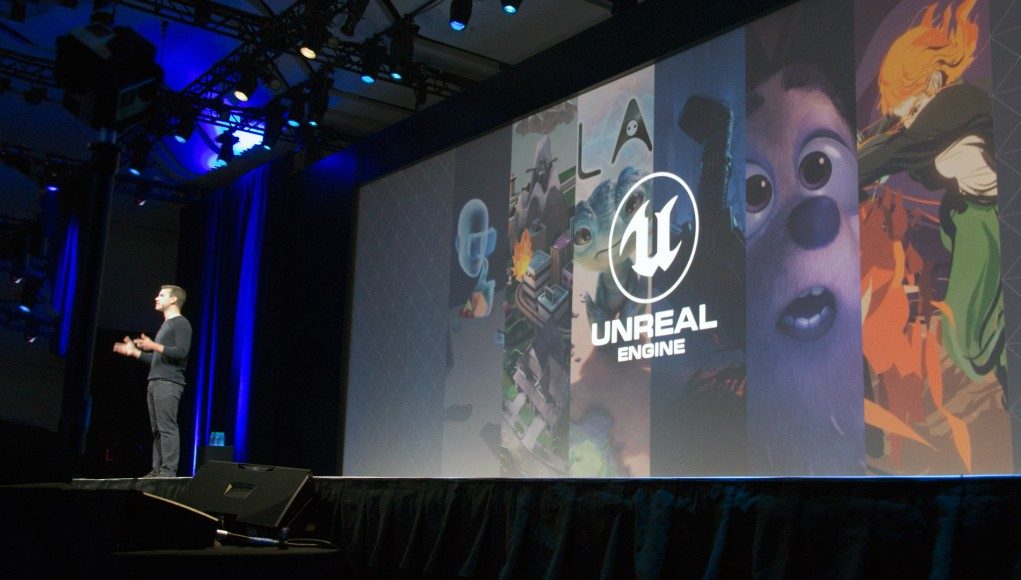Oculus covered a lot of ground during their opening keynote at Oculus Connect 3 this week; among many exciting announcements, one of interest for Unreal Engine developers might be how Oculus says that they’ll cover the royalty fees for any Unreal Engine applications on their store, up to the first $5 million in gross revenue.
That means that developers, who must normally pay the engine creator 5% of their gross revenue, can get up to $250,000 in fees covered for each game. Oculus, who earmarked this week another $250 million in VR content investment, has had a close relationship with Epic Games, the makers of the Unreal Engine, since the inception of the Rift headset. The engine enjoys a large presence both on the Oculus store and with Oculus’ own in-house VR experiences, such as Farlands and Dear Angelica.
This could be a great deal for VR devs; getting into VR development can be difficult for many reason reasons, including financial, even though game development in general has kept getting cheaper and cheaper over recent years. Unity for instance, Unreal Engine’s biggest competitor, has also made game development much cheaper and more accessible. Like with Epic, Unity also has close ties and influence with Oculus, and Oculus has previously offered free Unity development licenses to its budding VR development community.
However, while the prospects for Unreal Engine developers seem nice on the surface of the announcement, there are no further details on how exactly Oculus will cover the Unreal Engine fees, and what restrictions there may be. For instance, no details have been given on whether or not this offer applies to developers who were already on the Oculus store prior to the announcement. It may be that they only want to spend money on attracting new developers into the ecosystem, in which case, the Unreal Engine developers who’ve already published on the Oculus store would not get the funds. There also doesn’t seem to be any details on how long this offer would last, or if they do in fact intend it to be something permanent. We’ve reached out to Oculus for clarification.
Getting to $5 million in revenue is a high and almost certainly unseen bar for any single VR application at the moment though, so for developers to take full advantage of the program, they’ll need to demonstrate more than just short-term success.
Either way, there’s still a lot of value at stake, and it may prove a good influence on not just the Oculus platform, but the VR industry, as more developers get into VR, and start getting more funds needed for future VR projects.







